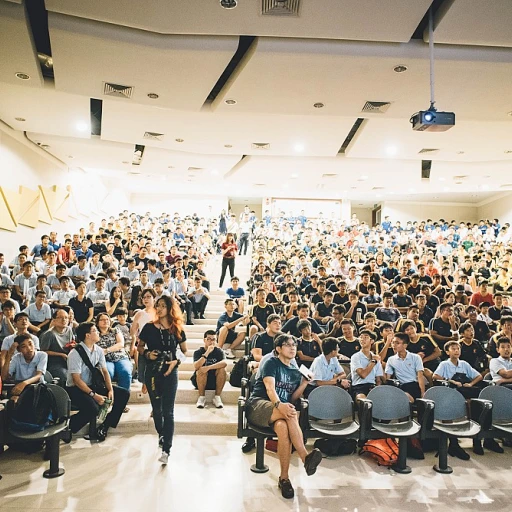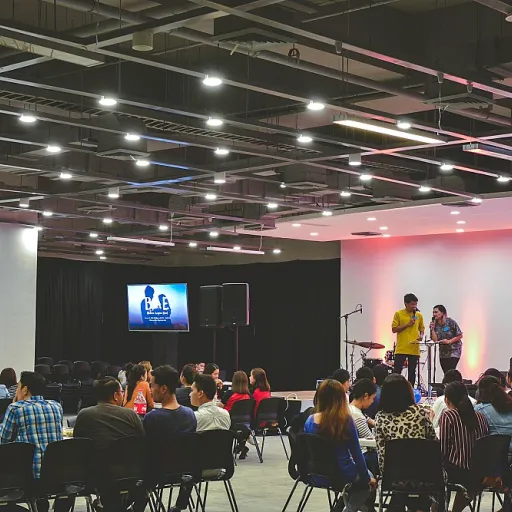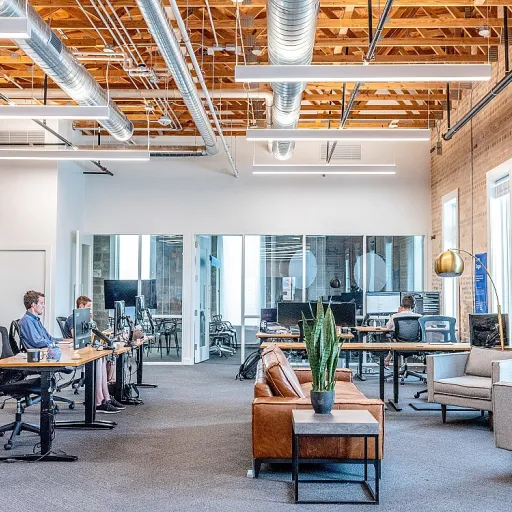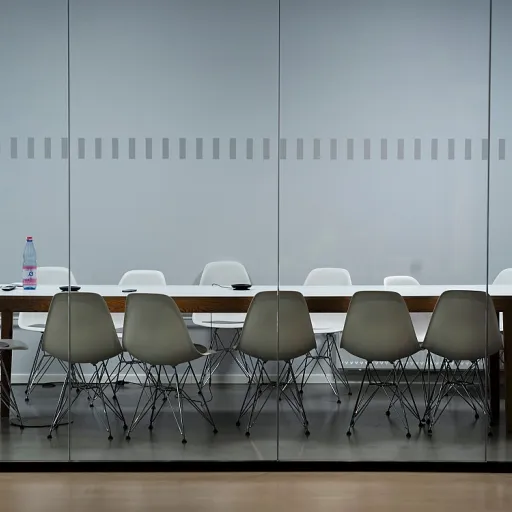
Understanding the concept of an intelligent workplace
Defining the Modern Intelligent Workspace
In the Arabian Emirates, the concept of an intelligent workplace is evolving rapidly. Companies are rethinking the traditional office, blending digital tools, smart technology, and flexible workspaces to create environments that support both productivity and employee experience. An intelligent workplace is not just about advanced systems or the latest gadgets. It’s about integrating workplace solutions that enable employees to work smarter, whether they are in the office, working remotely, or in a hybrid setting.
Key Elements of an Intelligent Workplace
- Smart Technology Integration: Tools like room booking and desk booking software, visitor management systems, and collaboration tools are now essential. These technologies help manage office space efficiently and support seamless collaboration among teams.
- Data-Driven Decision Making: Companies are using data analytics and machine learning to optimize workflows, monitor space usage, and enhance productivity. Real time data allows management to adapt quickly to changing needs.
- Cloud Computing and Digital Tools: Cloud-based workplace technology ensures that employees can access information and collaborate from anywhere, supporting hybrid work models and improving the overall work environment.
Why Intelligent Workplaces Matter in the Emirates
With a diverse workforce and a fast-paced business environment, organizations in the Arabian Emirates are searching for ways to enhance productivity and streamline tasks. Intelligent workplaces offer solutions that go beyond simple automation. They create a culture of collaboration, flexibility, and continuous improvement. As companies adapt to new ways of working, the focus shifts to employee well-being, security, and the ability to respond to real time challenges.
For businesses looking to stay ahead, understanding the importance of effective tracking strategies can provide valuable insights into how intelligent workplace systems can drive better outcomes.
Adapting to cultural diversity in the office
Embracing Diversity for a Smarter Workplace
The Arabian Emirates is home to a vibrant mix of cultures, languages, and traditions. In the modern office, this diversity is a powerful asset, but it also brings unique challenges. Creating an intelligent workplace means recognizing and adapting to these differences, ensuring every employee feels valued and included.
- Communication tools: With employees from various backgrounds, clear communication is essential. Digital tools and collaboration platforms help bridge language gaps and support real time information sharing. This not only enhances productivity but also fosters a sense of belonging among team members.
- Flexible work policies: Hybrid work models are increasingly popular in the region. By offering flexible schedules and remote work options, companies can accommodate different cultural and religious practices, making the work environment more inclusive.
- Smart workplace solutions: Intelligent workplace technology, such as room booking and desk booking systems, supports diverse teams by making it easy to find suitable spaces for collaboration or focused tasks. These tools also help with visitor management, ensuring a seamless experience for guests from different backgrounds.
Data analytics and cloud computing play a key role in understanding employee needs and preferences. By analyzing workplace data, management can tailor workplace solutions to enhance employee experience and support collaboration across cultures. Machine learning systems can even suggest optimal meeting times or recommend digital tools that suit different working styles.
For companies looking to further streamline project management in diverse teams, exploring project management tools comparison can help identify the best fit for their unique environment.
Ultimately, an intelligent workspace in the Arabian Emirates is one that respects and leverages cultural diversity, using smart technology and workplace management systems to create an environment where every employee can thrive.
Leveraging smart technologies for efficiency
Smart Technologies Driving Efficiency in Modern Offices
In the Arabian Emirates, the adoption of smart technology is transforming the workplace into a truly intelligent environment. Offices are integrating digital tools and workplace solutions to streamline tasks, improve management systems, and boost productivity. This shift is not just about using the latest gadgets; it’s about creating a connected, data-driven work environment that supports both hybrid and traditional work models.
- Collaboration tools: Platforms that enable real time communication and document sharing are essential for hybrid work. These tools help employees collaborate efficiently, regardless of their location.
- Cloud computing: By moving data and applications to the cloud, companies ensure secure access to information and workplace technology from anywhere, enhancing flexibility and business continuity.
- Data analytics: Intelligent workplaces use data analytics to monitor space usage, employee experience, and productivity. This helps management make informed decisions about office design and resource allocation.
- Room and desk booking software: Smart booking systems simplify the process of reserving meeting rooms or desks, supporting flexible work arrangements and optimizing office space. For creative ideas on naming your conference rooms, check out this guide to creative conference room naming.
- Visitor management systems: Digital visitor management enhances security and streamlines the check-in process, ensuring a smooth experience for guests and employees alike.
Machine learning and automation are also being used to handle repetitive tasks, freeing up employees to focus on more strategic work. These technologies not only enhance productivity but also contribute to a better employee experience by reducing manual workload and enabling smarter decision-making.
As companies in the Arabian Emirates continue to invest in workplace intelligent solutions, the focus remains on creating a digital, adaptive, and secure environment that supports both business goals and employee well-being.
Prioritizing employee well-being and engagement
Fostering a Positive Employee Experience
In the Arabian Emirates, the journey to an intelligent workplace is not just about technology. It is about creating an environment where employees feel valued and engaged. Employee well-being is a core driver of productivity and innovation, especially in digital and hybrid workplaces where traditional office boundaries are shifting.
- Smart workplace solutions: Digital tools such as collaboration platforms, room booking and desk booking systems, and visitor management software help employees manage their tasks and spaces efficiently. These tools reduce friction in daily work, allowing employees to focus on high-value activities.
- Real-time data analytics: Intelligent workplaces leverage data analytics and machine learning to monitor employee engagement and well-being. For example, cloud computing systems can analyze usage patterns of collaboration tools or booking software, helping management identify areas for improvement in the work environment.
- Flexible workspaces: Adaptive office design, supported by workplace technology, allows employees to choose where and how they work. This flexibility is essential for hybrid work models, enhancing both comfort and productivity.
Employee experience is also shaped by transparent communication and access to the right digital tools. When employees can easily search for information, book meeting rooms, or collaborate in real time, their engagement and satisfaction increase. Intelligent workspace management systems play a key role here, ensuring seamless integration between physical and digital spaces.
Ultimately, prioritizing employee well-being in intelligent workplaces leads to higher retention, better collaboration, and a more resilient organization. By focusing on both technology and human needs, companies in the Arabian Emirates can create a truly intelligent workplace environment.
Designing flexible and adaptive workspaces
Creating Spaces That Support Hybrid Work and Collaboration
In the Arabian Emirates, the shift towards intelligent workplaces is driving a new approach to office design. Flexible and adaptive workspaces are now essential for supporting both digital and in-person collaboration. These environments help employees manage tasks efficiently, whether they are working remotely or in the office. Modern workplace solutions integrate smart technology, such as desk booking and room booking systems. These digital tools allow employees to search for available spaces in real time, making it easier to plan meetings or focus on individual work. Booking software also supports visitor management, ensuring a seamless experience for guests and staff alike.- Hybrid work models benefit from adaptable office layouts that can be reconfigured for teamwork or quiet concentration.
- Collaboration tools and cloud computing platforms enable employees to connect and share data from anywhere.
- Workplace technology, including intelligent workspace management systems, uses data analytics to optimize space usage and enhance productivity.
Ensuring security and privacy in a digital workplace
Building Trust with Robust Security Measures
As digital and hybrid workplaces become the norm in the Arabian Emirates, protecting sensitive data and ensuring privacy are essential for maintaining trust and productivity. Intelligent workplaces rely on a variety of digital tools, from collaboration platforms to desk booking and room booking software, all of which handle significant amounts of employee and company information. The challenge is to create a secure work environment that supports real time collaboration and seamless access to workplace solutions, without compromising on privacy.
- Access Control: Implementing advanced visitor management systems and smart access controls helps restrict entry to office spaces and digital platforms. This ensures only authorized employees and guests can access specific areas or data.
- Data Protection: With the integration of cloud computing and machine learning, it is vital to use encryption and secure data management practices. This protects sensitive information from unauthorized access and cyber threats.
- Employee Awareness: Regular training on digital security protocols empowers employees to recognize potential risks and use workplace technology responsibly. This proactive approach strengthens the overall security posture of the intelligent workspace.
- Privacy by Design: Embedding privacy features into collaboration tools and booking software ensures that personal and business data is handled with care, supporting compliance with local regulations and global standards.
Balancing Productivity and Privacy
While leveraging smart technology and data analytics can enhance productivity and streamline tasks, it is important to balance these benefits with respect for employee privacy. Transparent communication about how data is collected, stored, and used fosters a culture of trust. Additionally, offering flexible options for desk booking and hybrid work arrangements allows employees to choose the work environment that best suits their needs, while still maintaining security standards.
By prioritizing both security and privacy, companies in the Arabian Emirates can create intelligent workplaces that not only drive efficiency but also safeguard the employee experience. This approach supports sustainable growth and positions organizations as leaders in the evolving digital landscape.











